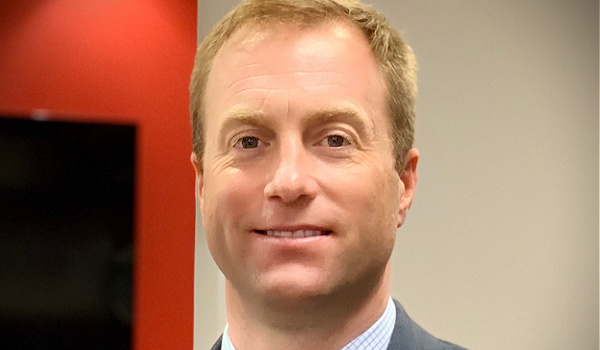Sarson Funds, Inc.
The institutionalization of digital asset investing continues at pace, even as many cryptocurrencies have experienced more than a year of heightened volatility.
According to John Sarson, CEO and co-founder of Sarson Funds, a crypto asset manager and information resource for advisors, there’s strong evidence that institutions are in the crypto space to stay.
“Institutions have been moving at a snail’s pace into the industry, but now that they’ve started, they won’t stop,” said Sarson. “I haven’t heard of one institution that bought into crypto in the third or fourth quarter last year, or in the first quarter this year, which is selling. Nothing is happening to make them want to sell.”
Even as Bitcoin lost more than 40% of its value after China cracked down on crypto mining and banking, institutions have made further inroads into the digital assets space.
Sarson has already discussed State Street’s decision to create a 450-person digital assets unit to trade cryptocurrencies and trade tokenized securities—several large asset managers, banks and wealth management firms have followed suit with crypto divisions of their own.
For example, Fidelity recently announced that it will expand the staff at Fidelity Digital Assets, its cryptocurrency unit, by 70%. That’s not all—Citi, Goldman Sachs and Morgan Stanley have initiated or increased their own forays into digital assets in recent weeks.
“It looks to me like institutions are stampeding into the space,” he said. “That’s why it’s important for people not to focus too much on the day-to-day prices of individual tokens, the market in the short-term is a voting machine, but in the long-term it’s a weighing machine. There are a lot of people voting with dollars in Asia and selling. Institutions in the West have taken up the mantle because we realize that in order for capitalism to work, you have to have free flow of capital.”
Now traditional Wall Street giants like Morgan Stanley, BlackRock and Capital Group are going into crypto in a major way, but they’re taking a roundabout route to get there: buying shares of Microstrategy.
In 2020, Microstrategy’s CEO, Michael Saylor, decided to start investing the company’s cash reserves into Bitcoin, reasoning that digital assets will likely be more inflation resistant than holding cash. A year later, the company has invested over $1.25 billion in Bitcoin.
In recent months, major asset managers have been adding shares of Microstrategy. With 12% ownership of the company, Capital Group becomes the second largest shareholder behind BlackRock, which owns 15% of Microstrategy.
The moves by BlackRock, Capital Group and Morgan Stanley may help re-establish Bitcoin’s bullishness, according to some analysts.
“Capital Group’s decision to grab 12% of Microstrategy was especially eye-opening,” said Sarson.
“There are few asset managers held in higher regard than Capital Group, but it’s funny because the crypto industry doesn’t really know who they are so most people in cryptocurrencies didn’t care,” he said. “People are saying that Capital Group essentially just bought $550 million worth of Bitcoin. If you want to buy Bitcoin but have it act as a security, the one way is to do what Microstrategy did.“
“Capital Group and BlackRock may be trying to embrace disruption before they’re rendered obsolete,” said Sarson.
Any asset can be tokenized and because of this fact, synthetic digital financial assets can represent already existing asset classes—so a share of Tesla could be issued as a synthetic share built on the Ethereum blockchain, allowing a stock trade to be settled in Ether with the blockchain as an intermediary instead of an asset manager, investment bank or broker.
“You could take that stock and trade it with a 14-year-old in Bangladesh and never leave your Ethereum wallet,” said Sarson. “People who want to trade stock will be able to do so without anyone knowing where they are or who they are, which makes it hard for the SEC to police. The protocol itself is a stateless digital autonomous organization, or DAO. This is already happening, and it will continue to happen more.”
Sarson illustrates such disintermediation with an illustration: Two friends enter a casino and visit the roulette table, but after a few bets, they stop putting chips on the table to bet against the casino and only bet against each other, one on red, the other on black.
“The only loser there is the casino,” he said. “So, when you step into the crypto world, you’re giving up the traditional institutional security of a NYSE or Schwab, but you’re picking up the security of a smart contract and the unstoppable nature of the code being the law. Many people currently distrust financial institutions and it makes sense that they would prefer it to be the blockchain which determines whether a dispute settles in their favor or not. I have more trust in code than institutions.”
As institutions enter the cryptocurrency space, some analysts have questioned whether the volatility of Bitcoin and altcoins may create systemic risk through cascading liquidations across asset classes.
Sarson said that these concerns are unwarranted—thus far.
“I think we’re still a long way from that,” he said. “The last time we had financial contagion was in 2008. Right now, digital assets are just $1.5 trillion of a $20 trillion economy. It’s still relatively miniscule. Any time something gets up above 40% of the economy, then that creates real contagion risk across the broader economy. We saw it with energy in the 80s and technology and financials in the 2000s.”
As more institutional money and workhours are dedicated to the cryptocurrency world in the U.S., regulators are likely to follow—which is potentially a game-changer toward the positive, according to Sarson.
“This could become a feather in the cap of all of our regulators,” he said. “They usually take a first, do no harm approach to regulation and that is special to us here in America. It allows our No. 1 export, innovation, to thrive across multiple technologies. Now the U.S. can lead the world in crypto innovation.”
As regulators in China crack down on cryptocurrencies, companies like Celsius, which recently announced a move to New York from the U.K., are looking to the U.S. for regulatory clarity.
As long as regulators seize the opportunity, Sarson predicts a wave of new crypto-oriented investment opportunities in the U.S.
“It will explode into the securities world due to the tokenization of assets,” he said. “The first thing to be tokenized will be private funds like venture capital and private equity. Then real estate and income streams will be tokenized, then any type of revenue will be tokenized. In five years, every business that has a cap table will be tokenized, because investors will want it.
To learn more about Sarson Funds, visit www.sarsonfunds.com







